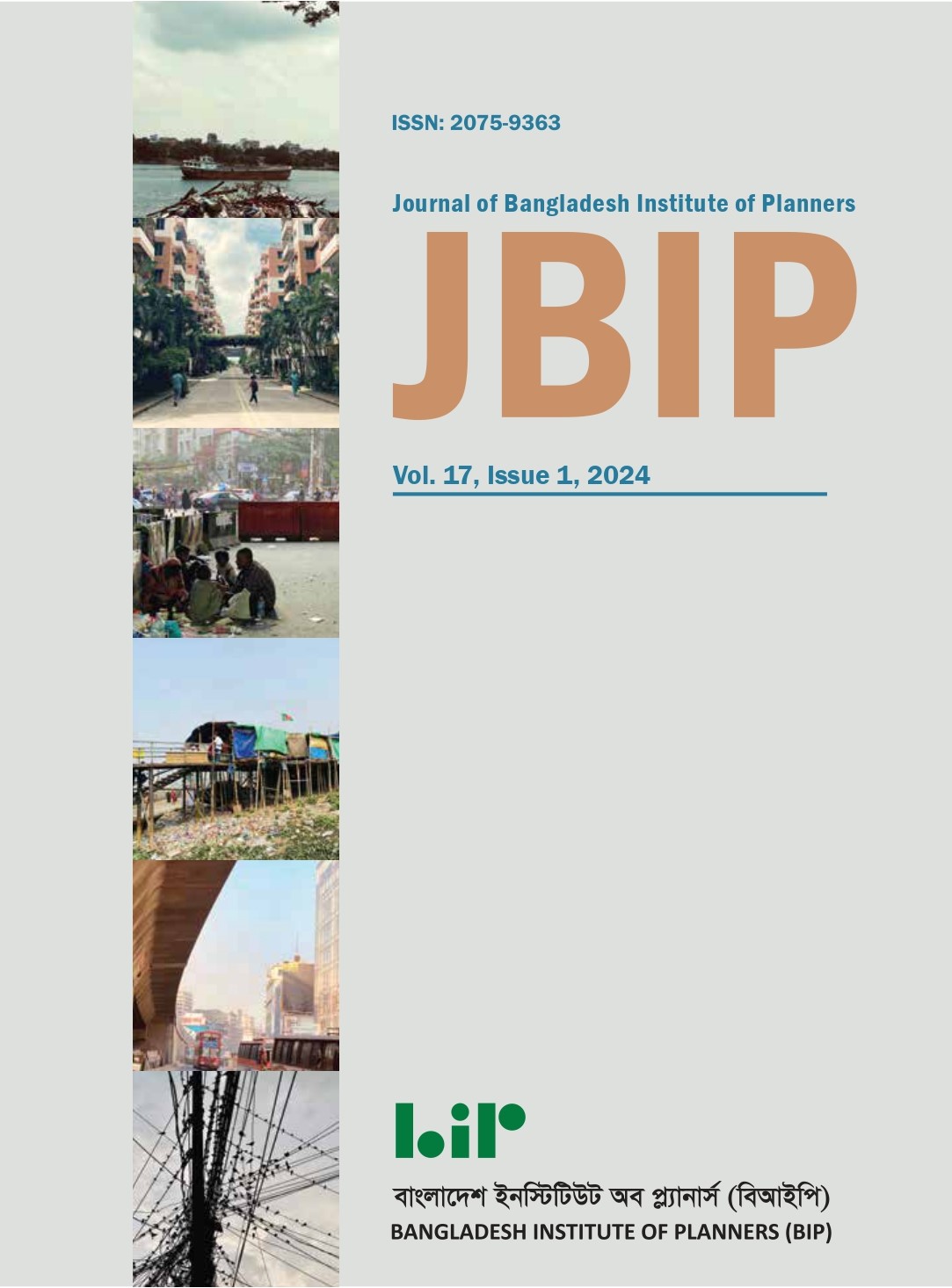An evaluative scrutiny of the waste separation and collection system in the urban setting of Narayanganj, Bangladesh: A comparative assessment in developed and developing country context
DOI:
https://doi.org/10.3329/jbip.v17i1.79879Keywords:
Waste separation, waste collection, waste management systemAbstract
Waste management is a crucial issue that affects the environment, health, and economy of different countries. However, the practices and systems of waste collection and separation vary significantly between developed and developing countries, depending on the availability of resources, infrastructure, regulations, and public awareness. This paper aims to compare the waste management systems in two different urban settings of developed and developing countries i.e., Frankfurt, Germany, and Narayanganj, Bangladesh; with contrasting levels of development and waste generation. Based on secondary data, the paper analyses the current situation, challenges, and opportunities of waste management, mostly focused on waste separation and collection systems in Narayanganj City. The comparative assessment is performed to figure out the divergence between the two cities in waste management practices. The paper also provides some guidelines for improving the waste management system in Bangladesh by shedding light on the best practices of a German City. Finally, it concludes focusing on the waste separation system which requires a rigorous change in multiple tools, policies, organizational arrangements, incorporation of modern systems and technology, and individual awareness.
JBIP, Vol. 17, 2024, pp. 49-74
Downloads
252
440




